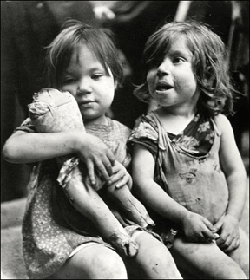Molassets: Developing Our Assets is Slow, Murky, Sticky Guesswork

We arrive here on Earth with no packing slip, no spec sheet, no list of our resources, talents, and weaknesses. These we gradually get hints of by trial and error, often through other people’s observations.
I loom over this ambiguously personal thing called my body. From above, I see it as though through a fish-eye lens. I can’t remember ever seeing what I look like running or walking, especially not the back of me. I’m not sure I’d want to.
For others, my body is the first thing they see about me. To them it’s another object in the world. Their first impressions are dispassionate observations. My relationship to my body is more treacherously navigated–a complex combination of delights and disappointments born of ambivalent observations–mine and those who care to comment.
Our bodies; ourselves–only sort of. When your body is working well, you can ignore it. When it hurts, you can’t. When it’s working well, it is tantamount to you. When it’s not working well, it’s the albatross around your neck, broken equipment you wish you could return under warranty. When others are disappointed in you, you wish for distance from your body. When they delight in you, you’re happy to take credit.
Still, when people are obsessed with your gifts–especially your looks or any other gifts that come with little effort–it must be hard to keep up with their certainty it’s you. What does it feel like to have gorgeous legs? On the inside it’s probably not a whole lot different from having just OK legs. And yet you keep meeting people who, seeing those legs of yours from fifty yards off, will rush and swoon over to treat you like royalty. To them you are your legs.
If the adulation is constant enough, you may come to see your legs as you, too, which is why it’s necessary to worry for the lucky ones, young people gifted with such arbitrary intoxicants. It’s as though the gods distributed at random these powerful talismans that cast spells of delirious submission on about half the people who come within sight.
Composing our spec sheets can be as cheery as a child’s Easter egg hunt. You see some color shining in the grass, a hidden talent perhaps. You go after it. Or instead someone hints that there’s maybe an egg over there that could be yours. You search it out, you cherish it.
Composing our spec sheets can also be as nerve-racking as waiting for cancer test results. Who knows what disappointments await us in us? We notice other people’s flaws. What’s to keep us from having such flaws too, or worse? There but (for the moment) for the grace of God go I. Nothing reliably prevents me from discovering in myself tomorrow what I pity others for having today.
Composing our spec sheets is especially uncertain work in young adulthood. Our talents and flaws aren’t fully formed, nor is our sense of what counts as a talent or flaw. Our sense of who we are whipsaws wildly. One day we’re gods, the next day we’re gargoyles. We also don’t yet have a clear sense of our power to influence ourselves. Who we are in comparison to who we could be is an unstable ratio. As young adults, we have less say over who influences us, and we’re more naive in how we pick our influences.
Our sense of what we possess tends to stabilize as we grow older. We come to a more reliable sense of who we are in comparison to others and who we are in comparison to what we could be. The stability doesn’t last, though, because by mid-life we start to change again. In a short spell falling somewhere between the ages of 45 and 65 we go through a dramatic transformation second only to puberty, and this one is moving us away from rather than toward prowess.
We don’t make ourselves, our bodies, or our minds. We have some influence over them, but its extent varies from person to person and is always limited. Yes, we can mold ourselves, but the material is slow. “Molassets”: Assets refined in a process that’s as slow as molasses. Ask anyone who has tried to lose weight or gain proficiency at a musical instrument.
It’s a wonder any of us have confidence in what we’ve got–a wonder explained largely by the way the company we keep can guide us to knowing, and by the way we can keep company away when we’d rather not think about what we’ve got.
We test our assets by taking them public. We run them up the flagpole to see who salutes. When people do salute, we possess our assets more assuredly. We know the work we’re doing on our molassets is working, which motivates us to work on them some more. But when we run them up the flagpole and people groan, we’re thrown into doubt about what we’ve got and whether it’s worth cultivating. But it’s also through their groans that we can keep growing. If we can get others to make their groans specific, we can figure out what works and what doesn’t, what to improve and what to give up on.
When do you take something public? Too soon and it throws you off. Too late and you miss out on the early feedback that could make work on your molassets more efficient. It’s not an easy question. But what interesting question is easy?


